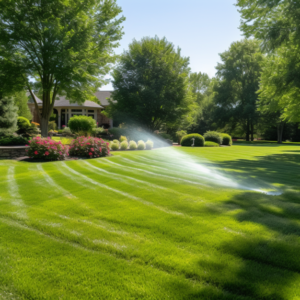Things to Do in St. Charles MO

Looking for a weekend getaway packed with history, charm, and plenty of things to do? Look no further than St. Charles, Missouri.
With its historic district, Main Street, lined with buildings from the 1800s, you can shop, dine, and take leisurely walks.
Take the time to explore the St. Charles Historic District and visit the First Missouri State Capitol State Historic Site.
Don’t forget to taste the local wines at wineries in the Historic Missouri Wine Country.
For those who love the outdoors, Katy Trail State Park offers the nation’s longest developed rail-trail.
And art enthusiasts will be delighted by the rotating exhibitions and artist studios at The Foundry Art Centre.
Get ready for a memorable trip to St. Charles!
Key Takeaways
Looking for a weekend getaway packed with history, charm, and plenty of things to do? Look no further than St. Charles, Missouri.
With its historic district, Main Street, lined with buildings from the 1800s, you can shop, dine, and take leisurely walks.
Take the time to explore the St. Charles Historic District and visit the Missouri State Capitol State Historic Site.
Don’t forget to taste the local wines at wineries in the Historic Missouri Wine Country.
For those who love the outdoors, Katy Trail State Park offers an extensive rail-trail.
And art enthusiasts will be delighted by the rotating exhibitions and artist studios at The Foundry Art Centre.
Get ready for a memorable trip to St. Charles!
Exploring Main Street
Main Street is a district filled with historic buildings dating back to the 1800s, offering a charming atmosphere for shopping, dining, and leisurely walks.
As you stroll down Main Street, you’ll be captivated by the unique architecture and the rich history that surrounds you. The street is lined with local retail shops, restaurants, and more, providing a wide range of options for every taste and interest.
Whether you’re in the mood for boutique shopping, trying out delicious cuisine, or simply enjoying a leisurely walk, Main Street has it all.
With its proximity to the Katy Trail and the Missouri River, you can also enjoy scenic views and outdoor activities while exploring this vibrant district.
Don’t miss the opportunity to experience the charm and character of Main Street during your visit to St. Charles.
Enjoying Friday Night and Entertainment
Two Plumbers Brewery + Arcade is a must-visit spot on Friday night. They offer a wide selection of games and delicious craft beers. Step into this microbrewery and you’ll be transported to a world of nostalgia and fun. They have an amazing collection of classic board and arcade games, ranging from The Game of Life to Ms. Pacman. And the best part? You can enjoy your favorite craft beer while playing.
Two Plumbers Brewery + Arcade not only serves their own tasty craft beers, but they also feature brews from other local breweries. The atmosphere is lively and inviting, making it the perfect place to unwind and have a great time with friends. So grab a beer, grab a joystick, and let the good times roll at Two Plumbers Brewery + Arcade.
Visiting Local Attractions and Activities
The Lewis and Clark Boat House and Museum is a place where you can step into the museum and be transported back in time. It displays the renowned explorers’ journey and showcases impressive scale-model boats. The museum presents a diorama that highlights their journey, allowing you to visualize their campsite and the challenges they faced. Additionally, you can explore the video room, where informative videos about their journey can be watched. One of the highlights of the museum is the collection of scale-model boats on display. These beautifully crafted models provide a glimpse into the vessels that Lewis and Clark used during their exploration. Don’t miss the opportunity to see these remarkable boats up close and learn more about their historic voyage.
Sunday Activities and Dining
If you’re searching for a scrumptious Sunday brunch in St. Charles, head over to Ginghams Homestyle Restaurant for a satisfying meal.
This beloved local eatery offers a cozy and inviting atmosphere, perfect for starting your day off on the right foot.
The menu boasts a variety of breakfast and brunch options, including classic favorites such as fluffy pancakes, crispy bacon, and perfectly cooked eggs.
Whether you’re in the mood for a hearty omelette or a stack of delicious French toast, Ginghams Homestyle Restaurant has something to please every palate.
Be sure not to miss their homemade biscuits and gravy, a definite crowd pleaser.
With friendly service and generous portions, this charming restaurant is a must-visit for anyone looking to enjoy a memorable Sunday brunch in St. Charles.
Discovering The Foundry Art Centre
When you visit the Foundry Art Centre in St. Charles, don’t miss out on exploring the rotating art exhibitions and artist studios.
This visual arts center, located in a historic 1940s foundry building, offers a special and immersive experience for art enthusiasts.
The centre showcases a wide range of art forms, such as painting, sculpture, photography, and mixed media. As you wander through the exhibitions, you’ll have the chance to appreciate the diverse and talented artists featured here.
Additionally, the artist studios provide a glimpse into the creative process, allowing you to witness artists at work and even engage in conversations with them.
The Foundry Art Centre is not only a place to admire art but also a hub for the local arts community, supporting and nurturing emerging and established artists.
Exploring Historic Missouri Wine Country
Exploring Historic Missouri Wine Country
While visiting St. Charles, it would be a shame to miss out on the opportunity to explore the charming and historic Missouri Wine Country. This region is renowned for its multitude of wineries and vineyards, offering visitors a chance to indulge in the delightful experience of wine tasting amidst the picturesque countryside.
Some notable wineries worth visiting include Augusta Winery, Montelle Winery, and Chandler Hill Vineyards. These establishments allow guests to savor the distinctive flavors and aromas of Missouri wines, providing a truly immersive experience.
In addition to wine tasting, the region also hosts a variety of wine festivals and events that celebrate the local wine and culinary scene. Attending one of these festivals can be a fantastic way to further enhance your trip and immerse yourself in the vibrant atmosphere of the Missouri Wine Country. The festivals showcase the finest wines and culinary offerings of the region, ensuring that visitors have a truly memorable experience.
Whether you are a devoted wine enthusiast or simply seeking a unique and relaxing getaway, the historic Missouri Wine Country is bound to captivate your senses and create lasting memories. The beautiful vineyards, the rich flavors of the wines, and the festive atmosphere all contribute to an unforgettable journey.
Exploring Katy Trail State Park
Exploring Katy Trail State Park is a must for outdoor enthusiasts looking to immerse themselves in the natural beauty of Missouri.
This 240-mile long trail follows the former route of the Missouri-Kansas-Texas Railroad and offers a special opportunity to experience the state’s scenic landscapes.
Whether you enjoy hiking, biking, or horseback riding, Katy Trail State Park has something for everyone.
The trail runs through charming small towns, lush farmland, and picturesque river bluffs, providing breathtaking views along the way.
You can also explore historic sites, enjoy wildlife spotting, and take in the peaceful serenity of the Missouri countryside.
With its well-maintained paths and convenient amenities, Katy Trail State Park is the perfect destination for outdoor adventure and relaxation.
Getting Around St. Charles
The St. Charles Trolley operates from April to December and is a free option for getting around.
Hop on board this charming trolley and explore the city with ease. With 11 stops, including popular attractions such as the Convention Center and Main Street, the trolley is a convenient way to navigate St. Charles.
If you prefer a more private mode of transportation, Uber is also available in the area. With just a few taps on your phone, you can request a driver and be on your way in no time.
Whether you choose the trolley or Uber, both options offer a great way to discover everything that St. Charles has to offer. So sit back, relax, and let the city unfold before your eyes.








